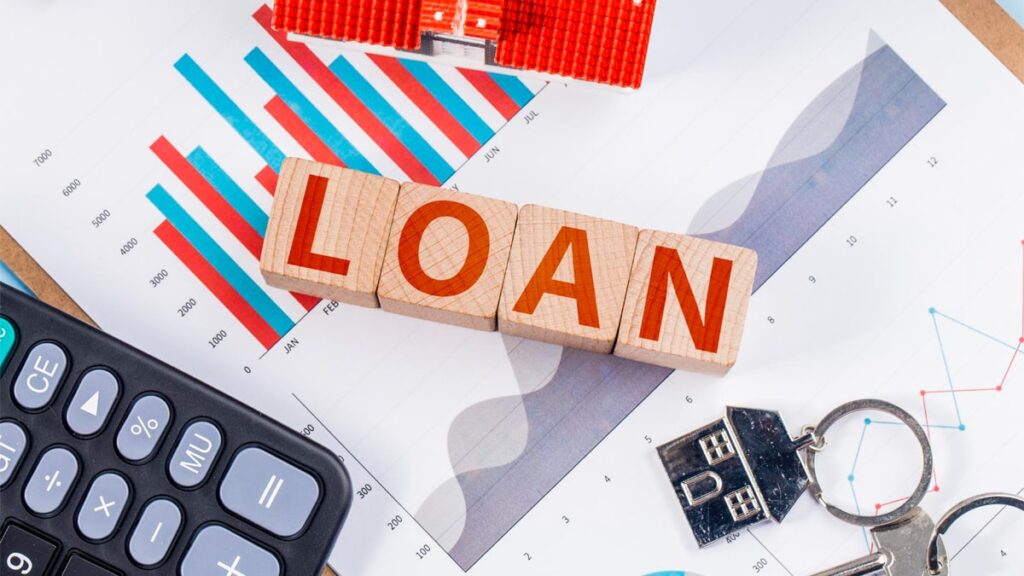Loan is very essential in financial growth and wealth development providing individuals with the necessary funds to achieve their goals and aspirations.
Whenever you go on to take a loan you’ll have two loan types which you can get. Among the various types of loans available, secured and unsecured loans stand out as popular options.
Understanding the key differences between these two types of loans is essential for making informed borrowing decisions.
In this article, we’ll discuss the difference between a Secured and Unsecured Loan, what is a secured loan and, an unsecured loan, the benefits of a secured, and much more.

Table of Contents
What is a Secured Loan?
A Secured Loan is a type of loan that the applicant gets by pledging the collateral as security for the loan.
If the borrower fails to repay the loan, the lender has the right to seize the collateral to recover their losses by auctioning it. For example- home loans, auto loans, etc.
Benefits of Secured Loan
The following are the benefits of Secured Loan-
- Since secured loans are backed by collateral, lenders offer larger loan amounts compared to unsecured loans
- Secured loans typically come with lower interest rates due to lower risk for the lenders
- Secured loans often come with longer repayment terms helping you manage cash flow
- Secured loans are generally easier to qualify for, even for borrowers with less-than-perfect credit histories, because the collateral reduces the lender’s risk
- While the collateral used to secure the loan is at risk if the borrower defaults, it helps protect other assets from being seized by creditors in the event of financial difficulties
What is an Unsecured Loan?
An unsecured loan is a type of loan that does not require collateral. Instead, the lender extends credit based solely on the borrower’s creditworthiness and ability to repay the loan.
In this type of loan, credit scores and history are very important to maintain to ensure you get the loan easily otherwise, your application could be rejected. For example- Personal loans, credit cards, student loans, and much more
Benefits of Unsecured Loan
The following are the benefits of Unsecured Loan-
- Unsecured loans do not require collateral making them accessible to borrowers who may not have valuable assets to pledge
- Since there is no need to appraise collateral, unsecured loans typically have a faster approval process
- With no collateral at stake, borrowers do not risk losing valuable assets however, in case you do not pay back your loan then you can compromise your credit score which can prevent future loans
- Unsecured loans provide borrowers with flexibility in how they use the funds, whether it’s for debt consolidation, home improvements, medical expenses, or other personal needs.
- Lenders cannot seize any assets in the event of default, providing borrowers with peace of mind
- Timely repayment of unsecured loans can help borrowers build or improve your credit score
What is the difference between a Secured and Unsecured Loan?
The following is the difference between a Secured Loan and Unsecured Loan-
| Secured Loan | Unsecured Loan |
| Secured loans require collateral, such as a house or car, as security for the loan. | Unsecured loans do not require collateral; approval is based solely on creditworthiness. |
| Secured loans pose a lower risk for lenders since collateral is pledged. | Unsecured loans involve higher risk for lenders since no collateral is involved. |
| Secured loans typically offer lower interest rates due to lower risk. | Unsecured loans generally come with higher interest rates due to higher risk. |
| Borrowers can often secure larger loan amounts due to collateral. | Loan amounts for unsecured loans may be limited based on credit score and income. |
| Secured loans may offer longer repayment terms. | Unsecured loans typically have shorter repayment terms. |
| The approval process for secured loans may involve extensive documentation and appraisal of collateral. | Approval for unsecured loans is mainly based on credit history and income. |
| Examples of secured loans include mortgage loans, car loans, and secured personal loans. | Examples of unsecured loans include personal loans, credit cards, and student loans. |
Which type of Loan is Better?
There is no one type fits all when it comes to the type of loan to be chosen here, the suitability of a secured or unsecured loan depends on various factors such as the borrower’s financial situation, the purpose of the loan, and the amount needed.
For smaller loan amounts, unsecured loans offer convenience and simplicity, as they typically require less documentation and no collateral. They are ideal for covering immediate expenses or managing short-term financial needs without risking valuable assets.
However, for larger loan amounts, secured loans provide access to more substantial funds at potentially lower interest rates. They are suitable for long-term investments or significant purchases like buying a home or financing a business venture.
It’s essential to evaluate the options carefully and choose the one that best aligns with your financial goals and capabilities.
FAQ
A Secured Loan is a type of loan that the applicant gets by pledging the collateral as security for the loan.
An unsecured loan is a type of loan that does not require collateral. Instead, the lender extends credit based solely on the borrower’s creditworthiness and ability to repay the loan.
Collateral provides lenders with security in case the borrower defaults on the loan, making secured loans less risky for lenders and easier to qualify for.
If you default on a secured loan, the lender has the right to seize the collateral to recover their losses by selling the asset in the open market. The amount that you owe to the bank will be deducted and if there is some remaining amount, then that money will be returned to you.
It depends, in some cases, you may be able to use the same collateral for multiple secured loans, but this depends on the lender’s policies and the value of the collateral.
I’m Shiv Kumar, a graduate with a passion for finance, marketing, and technology. My journey into finance started with a desire to understand money management and investing.
Our main goal is to empower individuals through financial education. We believe that everyone should have the opportunity to build a strong financial foundation. Whether you’re a seasoned investor or just getting started, we provide articles, guides, and resources to help you navigate the financial landscape.
I invite you to join our community of financially savvy individuals. Feel free to ask questions, engage with our content, and explore the topics that matter to you. Together, let’s take control of our financial futures.




